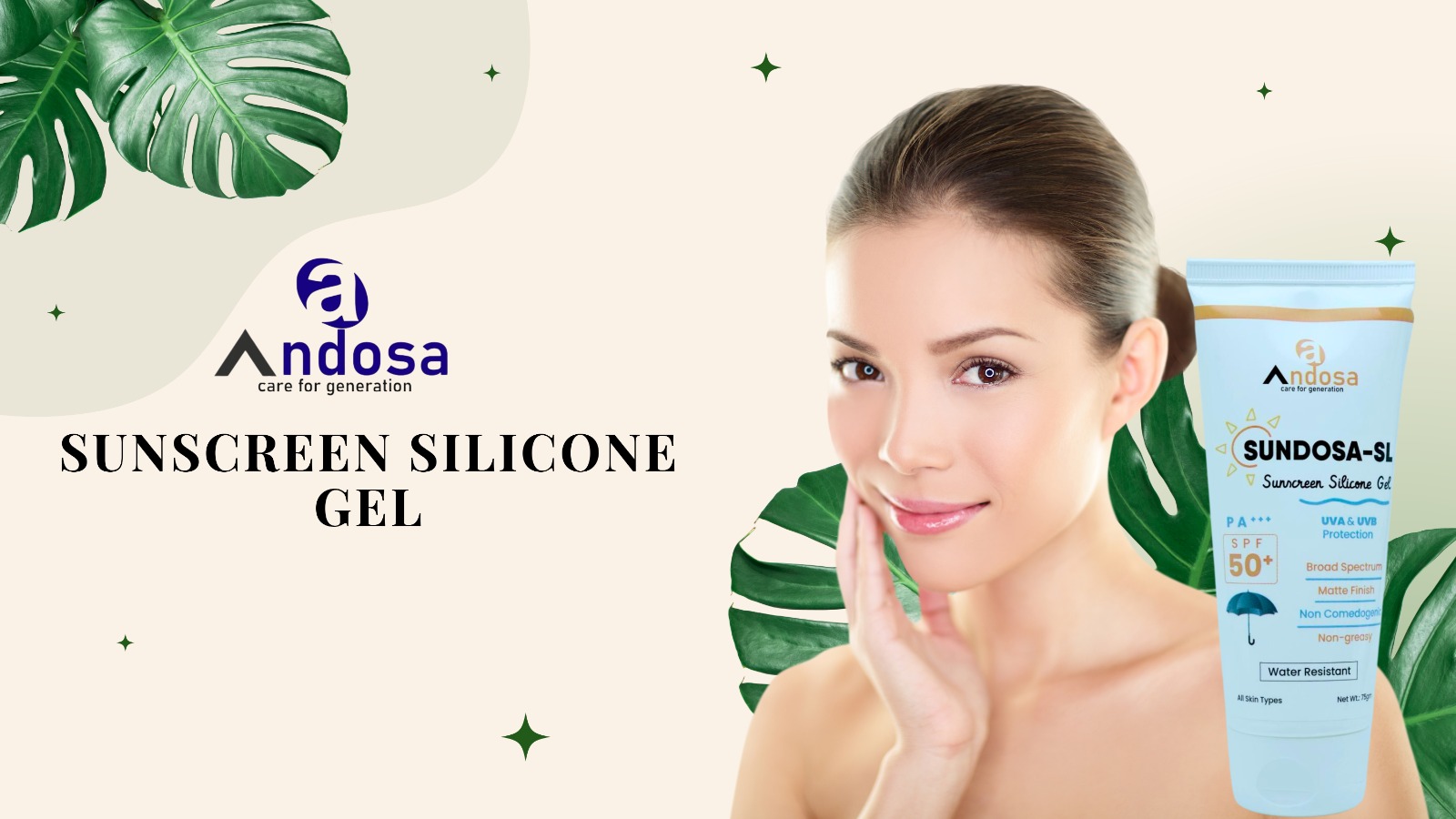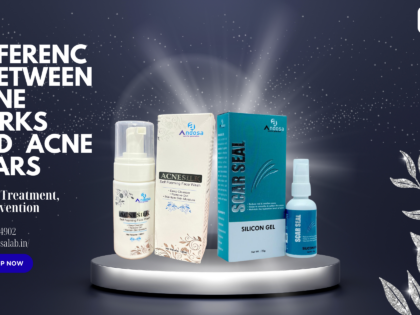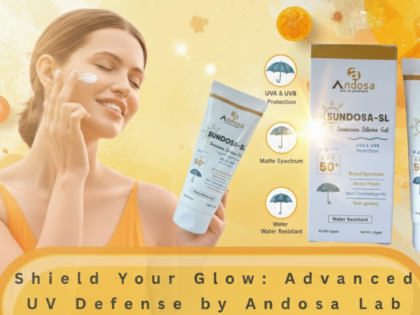Why Sunscreen Is Important in Winter?

When the cold winter air hits and the sun seems weak, many people stop using sunscreen. It’s a common belief that sunscreen is only needed in summer. But this is not true. The sun’s UV rays are present every day of the year, and they can damage your skin even in winter.
Using sunscreen in winter protects your skin from ageing, dark spots, dryness, and other long-term skin problems. In this blog, we explain why sunscreen is important in winter, how to use it effectively, and why Sundosa SPF 60 Lotion is a great option for daily protection. Apart from sunscreens, we do have a wide range of hair and skin care products.
1. Why Sunscreen in Winter Is Important
Even when it’s cold, the sun emits UVA and UVB rays. UVA rays penetrate deep into the skin and cause ageing, wrinkles, and loss of elasticity. UVB rays cause burns and tanning. These rays are always present, so protection is necessary all year round. To protect your skin in winter, using regular sunscreen is important to avoid skin damage and tanning this winter.
Can We Use Sunscreen in Winter?
Yes. Sunscreen in winter is just as important as in summer. It helps:
- Protect your skin from UV damage.
- Maintain even skin tone.
- Prevent premature ageing.
- Keep your skin hydrated and healthy.
Is UV Damage Possible in Winter?
Absolutely. Even on cloudy days, up to 80% of UV rays pass through clouds. Snow and ice reflect UV rays, increasing exposure. So, winter sun can still damage your skin.
2. Common Misconceptions About Winter Sunscreen
Many people think sunscreen is not needed in winter. Here are some common myths:
- “It’s cold, so I don’t need sunscreen.”
Cold weather does not reduce UV rays. Your skin is still exposed to UVA and UVB. - “I stay indoors, so I am safe.”
UVA rays can pass through windows. Even indoor light can slightly damage your skin. - “I won’t tan in winter.”
Tanning can still happen. UVA rays stimulate melanin production and cause uneven skin tone. - “Can I skip sunscreen during winter?”
No. Skipping sunscreen can increase long-term damage and cause premature ageing.
3. Benefits of Using Sunscreen in Winter
Using sunscreen every day in winter provides many benefits:
3.1 Protects Against Premature Ageing
UVA rays break down collagen and elastin, causing wrinkles, fine lines, and sagging. Daily sunscreen slows this damage.
3.2 Prevents Dark Spots and Uneven Skin Tone
Sunscreen protects your skin from hyperpigmentation, dark spots, and tanning caused by UV exposure.
3.3 Maintains Skin Hydration
Cold air and indoor heating can dry out your skin. Sunscreen acts as a barrier to lock in moisture and prevent flakiness.
3.4 Protects Sensitive Skin
Winter makes sensitive skin more prone to irritation and redness. Using sunscreen reduces windburn and rashes.
3.5 Reduces Risk of Skin Cancer
UV exposure is a key risk factor for skin cancer. Daily use of sunscreen lowers this risk significantly.
4. How Sunscreen Protects Your Skin
Sunscreen works by creating a protective layer that absorbs or reflects UV rays. High-SPF sunscreens, like Sundosa SPF 60 Lotion, offer broad-spectrum protection, shielding your skin from both UVA and UVB rays.
- UVA rays: Cause ageing, wrinkles, and dark spots.
- UVB rays: Cause burning, tanning, and damage to the skin’s surface.
Even when the sun feels weak in winter, UV rays remain strong enough to harm your skin over time.
5. Choosing the Best Sunscreen for Winter
When looking for the best sunscreen cream for winter, consider these factors:
- Broad-Spectrum Protection – Protects against UVA and UVB rays.
- High SPF – SPF 50 or higher is ideal; Sundosa SPF 60 Lotion is perfect.
- Hydrating Formula – Prevents dryness in cold weather.
- Non-Greasy and Lightweight – Absorbs easily without leaving white marks.
- Safe for All Skin Types – Gentle and non-comedogenic.
6. How to Use Sunscreen in Winter
Even in winter, correct application matters. Follow these simple steps:
- Apply 15–30 minutes before stepping outside.
- Use enough sunscreen – about half a teaspoon for your face and neck.
- Reapply every 2–3 hours if outdoors, especially if sweating or wiping your face.
- Don’t forget often-missed areas – ears, lips, neck, and hands.
- Layer with moisturizer if you have very dry skin.
Using sunscreen this way ensures complete protection throughout the day.
7. Sundosa SPF 60 Lotion – Perfect Winter Sunscreen
Sundosa SPF 60 Lotion is a high-SPF, broad-spectrum sunscreen made to protect skin during winter and year-round.
Key Features:
- SPF 60 for strong protection
- Shields against UVA and UVB rays
- Keeps skin hydrated and soft
- Non-greasy and lightweight
- Suitable for all skin types
Why Sundosa is the Best Winter Sunscreen
It protects, nourishes, and keeps your skin healthy in cold weather. Perfect for indoor and outdoor use. Whether you are commuting, working, or enjoying winter sports, Sundosa is easy to apply and reapply.
8. Winter Sun Exposure Risks
Winter weather can be deceptive. Here’s why you still need sunscreen:
- Reflected UV from snow and ice – Can double exposure.
- Cold and dry air – Dries skin, making it more vulnerable.
- High altitudes – Skiing or hiking increases UV intensity.
- Cloud cover – Doesn’t block UV rays completely.
Even short periods outside without sunscreen can cause damage over time.
9. Tips for Maximum Winter Protection
- Apply sunscreen every morning, even on cloudy days.
- Carry a small travel-size Sundosa SPF 60 Lotion for reapplication.
- Wear protective clothing: hats, scarves, gloves.
- Use SPF lip balm for lips.
- Moisturize regularly to prevent dryness.
Frequently Asked Questions
Q1. Do we really need sunscreen in winter?
Yes. UV rays are present all year, and sunscreen protects your skin from ageing, spots, and damage.
Q2. Can I skip sunscreen during winter?
No. Skipping sunscreen can cause premature ageing, pigmentation, and dryness.
Q3. Is sunscreen necessary in cold weather?
Yes. Temperature does not affect UV rays. Your skin is still at risk.
Q4. How often should I apply sunscreen in winter?
Every 2–3 hours outdoors or twice daily if mostly indoors.
Q5. What SPF is best for winter use?
SPF 50 or higher is recommended. Sundosa SPF 60 Lotion provides strong winter protection.
Q6. Should I wear sunscreen indoors in winter?
Yes. UVA rays penetrate windows and can damage skin indoors.
Q7. Does the sun cause tanning in winter?
Yes. UVA rays stimulate melanin and can cause tanning and uneven skin tone.
Q8. Can winter sun damage your skin?
Yes. UV rays cause ageing, pigmentation, and dryness even in cold weather.
Summary
Using sunscreen in winter is essential for healthy, glowing skin. Cold weather doesn’t reduce UV rays, and your skin remains at risk from UVA and UVB exposure.
Sundosa SPF 60 Lotion is the best sunscreen in winter, offering broad-spectrum protection, hydration, and a lightweight feel. By using it daily and following proper application steps, you can protect your skin from ageing, dark spots, and dryness all year round.
Remember, sunscreen is not just a summer product. Make it part of your daily winter skincare routine and enjoy healthy, protected skin every day.



